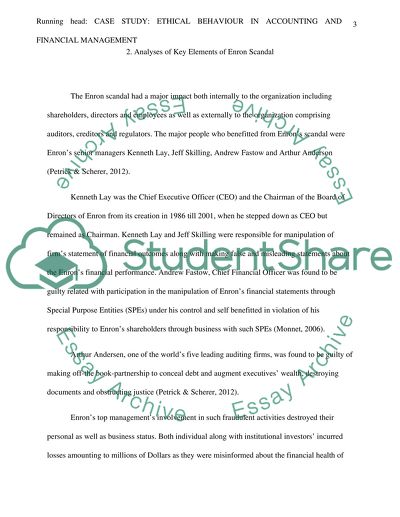Case Study: Ethical Behavior in Accounting and Financial Management Essay. Retrieved from https://studentshare.org/finance-accounting/1465694-case-study-ethical-behavior-in-accounting-and
Case Study: Ethical Behavior in Accounting and Financial Management Essay. https://studentshare.org/finance-accounting/1465694-case-study-ethical-behavior-in-accounting-and.


